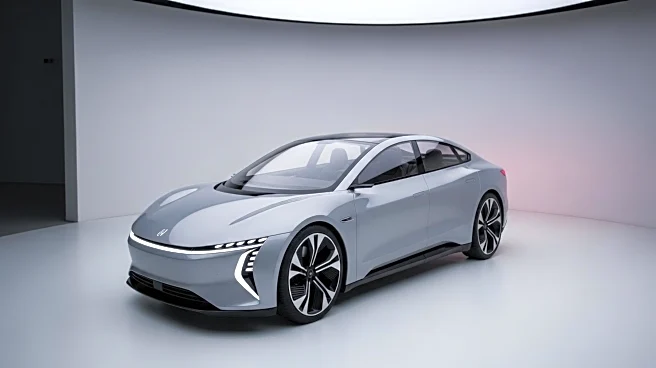What's Happening?
Tesla has introduced more affordable versions of its Model Y SUV and Model 3 sedan, aiming to make its electric vehicles more accessible to a broader audience. Despite the announcement, Tesla's stock experienced volatility, initially rising by 5% before closing down over 4% the following day. The market's lukewarm response is attributed to investor anticipation for updates on new products, such as the next-generation Roadster, which were not part of the announcement. Additionally, Tesla released a new version of its driver assistance system for Full-Self Driving, further enhancing its vehicle offerings.
Why It's Important?
Tesla's move to offer more affordable models is significant as it seeks to expand its market share in the competitive electric vehicle industry. By lowering the price point, Tesla aims to attract more consumers, potentially increasing its sales volume and reinforcing its position as a leader in the EV market. However, the mixed market reaction highlights investor concerns about the company's ability to deliver on long-promised innovations and maintain its growth trajectory. The introduction of affordable models could pressure competitors to adjust their pricing strategies, impacting the broader automotive industry.
What's Next?
Tesla's strategy to offer affordable models may prompt other automakers to reevaluate their pricing and product offerings to remain competitive. Investors will be closely monitoring Tesla's sales figures and market performance to assess the impact of these new models. Additionally, the release of the updated driver assistance system may lead to further developments in autonomous driving technology, influencing regulatory discussions and consumer adoption rates. Tesla's future announcements regarding new product innovations will be critical in maintaining investor confidence and driving stock performance.
Beyond the Headlines
The introduction of affordable Tesla models could have broader implications for the electric vehicle market, potentially accelerating the transition to sustainable transportation. As more consumers gain access to EVs, there may be increased demand for charging infrastructure and renewable energy sources, influencing environmental policy and investment in green technologies. Furthermore, Tesla's advancements in driver assistance systems may raise ethical and legal questions regarding autonomous driving, prompting discussions on safety standards and liability.











